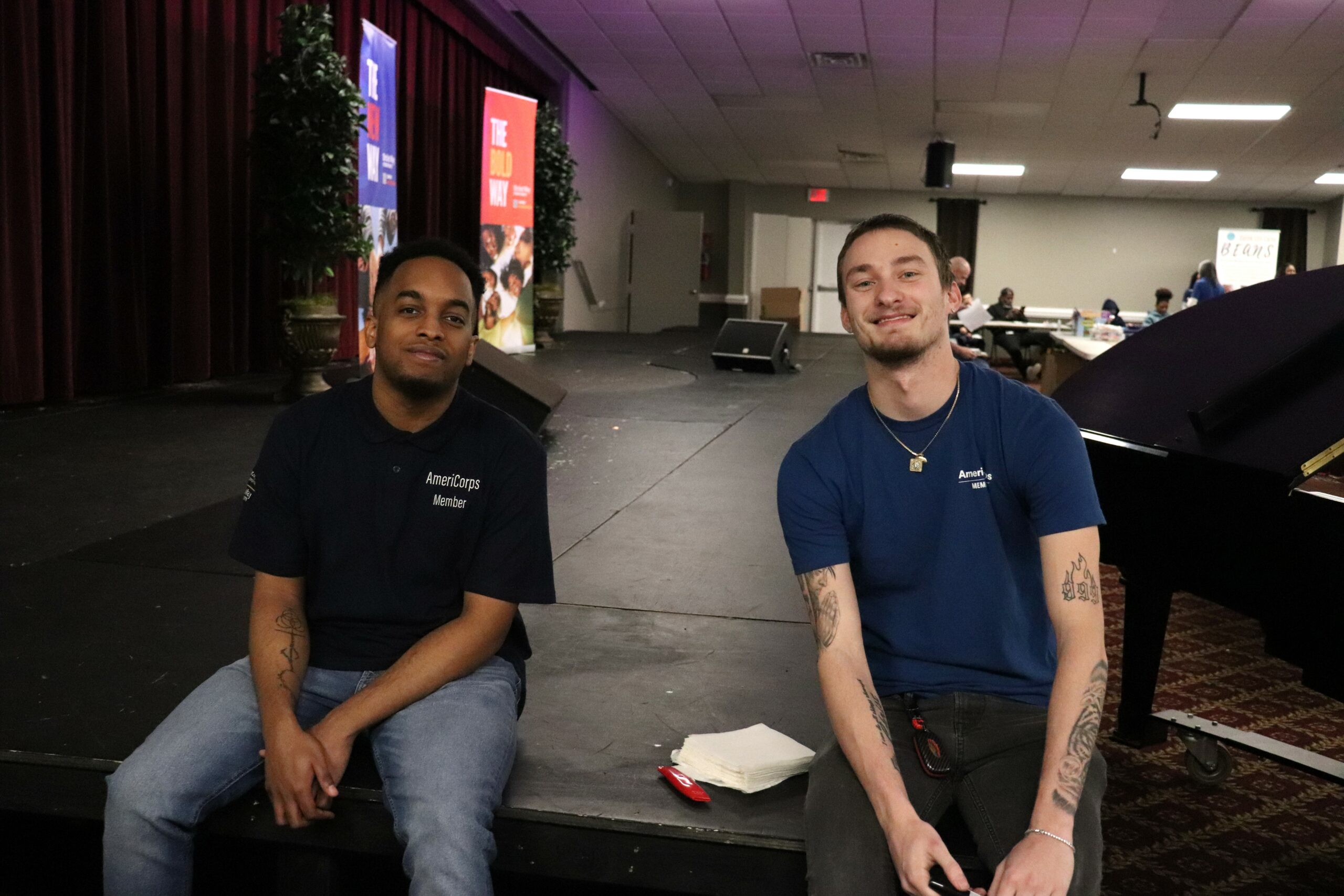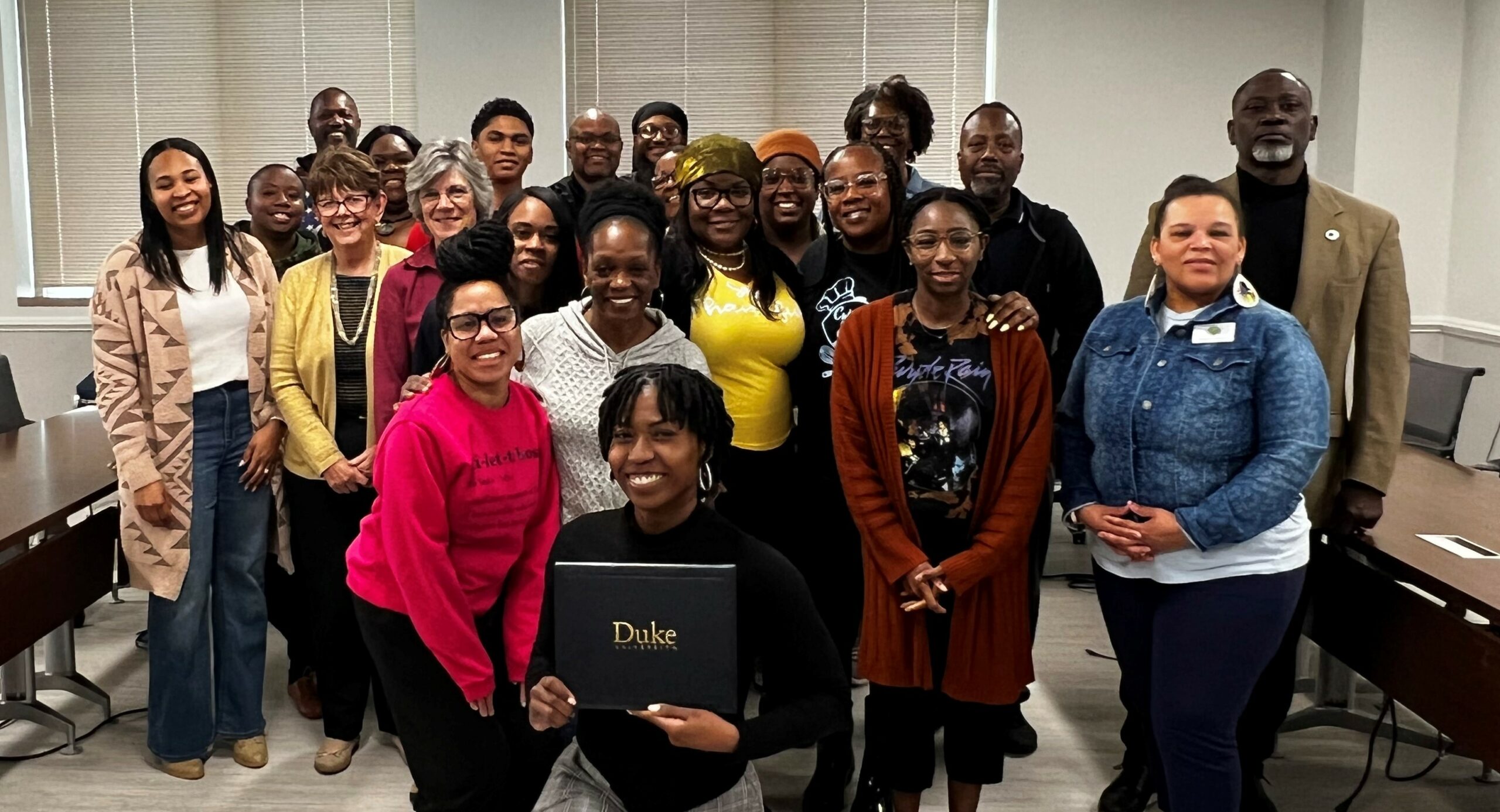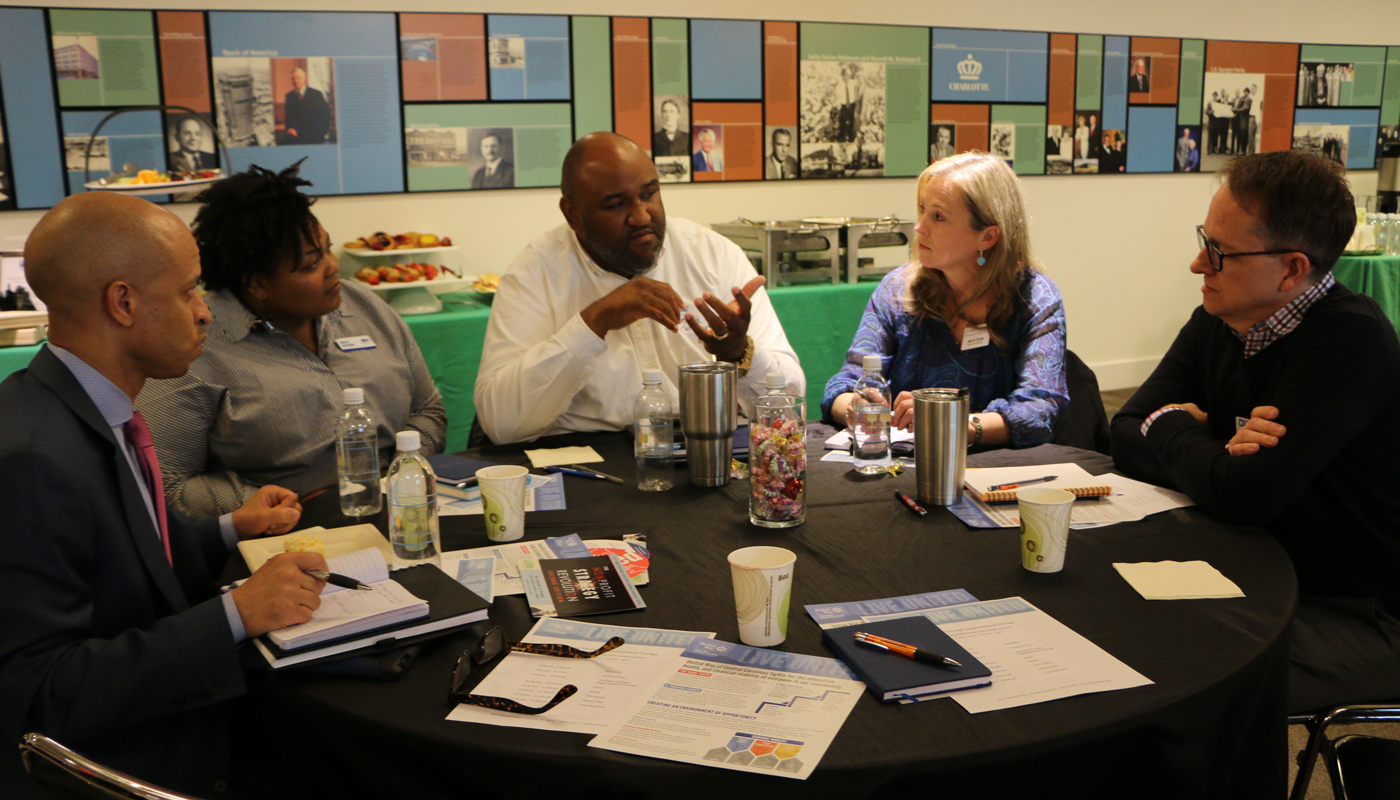
Thriving Through Change
This content has been archived. It may no longer be relevant
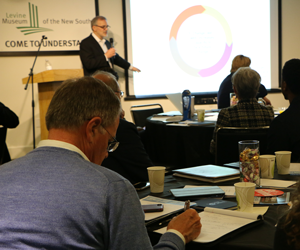 Adapting to change can be hard, but organizations can create ways to thrive through changes while continuing to support the communities they serve.
Adapting to change can be hard, but organizations can create ways to thrive through changes while continuing to support the communities they serve.
Leading nonprofit strategy expert David La Piana, who founded La Piana Consulting, shared this and other guidance on April 17 during a “Thriving Through Organizational Change” workshop and panel discussion at the Levine Museum of the New South. The event was hosted by United Way of Central Carolinas Chief Impact Officer Laura Clark for area nonprofit executives.
More than 60 nonprofit leaders, including United Way partners and Unite Charlotte participants, had an opportunity at the event to share their experiences with organizational change. Examples of change included learning different technologies, welcoming new leadership, and relocating services.
The leaders also received advice from La Piana and peer organizations on how to fully embrace this change.
“Human beings tend to prefer the misery of the current state to the unknown of the future. You try to change things and people just hunker down,” La Piana said. “Leading change well will lead to people being more adaptive (to that change).”
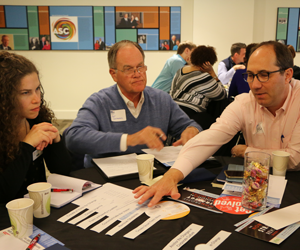 La Piana shared an eight-step change model that could help improve leaders’ ability to create successful change. The model includes creating urgency and a vision for change and then removing obstacles to ultimately anchor the change.
La Piana shared an eight-step change model that could help improve leaders’ ability to create successful change. The model includes creating urgency and a vision for change and then removing obstacles to ultimately anchor the change.
Nonprofits also need to consider how any changes might impact outside stakeholders like funders, La Piana said.
“Whenever major change comes to an organization, rumors will follow,” he said. “You need to be on message with all stakeholders to move forward.”
Panelists with prominent area organizations shared personal experiences on changes they’ve experienced in their respective workplaces, and advice for navigating these changes.
Arrington Mixon, senior program officer at The Leon Levine Foundation, said one way she has worked through change throughout her career is by focusing on leadership.
“We put a lot of time and faith and energy into leadership and understanding leadership and its capabilities moving forward,” she said. “And that’s not just staff leadership, but also board leadership.”
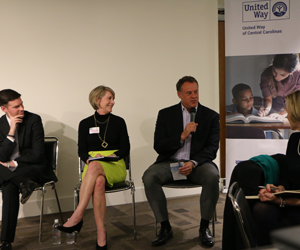 Jay Everette, senior vice president and community affairs manager at Wells Fargo, agreed that leadership, particularly personal leadership, has helped him handle organizational change.
Jay Everette, senior vice president and community affairs manager at Wells Fargo, agreed that leadership, particularly personal leadership, has helped him handle organizational change.
“Change has literally been hard for me every time I’ve faced it in my life, whether it’s been personal or professional,” he said. “It is hard work but you have to be very conscious about it. No matter what your title is, I think you have to wake up every morning and say, ‘What’s my role in this?’”
United Way’s Executive Director Sean Garrett also suggested taking a proactive approach by embracing change.
“I’ve personally been so impressed when folks get dealt the bad hand of cards and really embrace it and play it well, versus those that get stuck on it,” he said. “The more we switch to that proactive approach, even in reactive time periods, I think goes a long way with funders, donors and other players.”
Capacity building is an important part of United Way’s work. Workshops and other resources for local nonprofits are provided throughout the year. Now more than ever, United Way is working to bring together nonprofits, community leaders, volunteers, and donors to address challenges facing our community.


